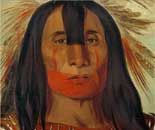The following sites assist with cataloging a personal collection of books online:
 LibraryThing
LibraryThingLibraryThing is an online service to help people catalog their books easily. You can access your catalog from anywhere—even on your mobile phone—. Because everyone catalogs together, LibraryThing also connects people with the same books, comes up with suggestions for what to read next, and so forth. A free account allows you to catalog up to 200 books. A paid account allows you to catalog any number of books. Paid personal accounts cost $10 for a year or $25 for a lifetime.
 GuruLib
GuruLibGuruLib is a free web service to organize your home library. In addition to cataloging your books, you can catalog your DVDs, CDs, games and software online using a book shelf metaphor.
 Shelfari
ShelfariThis free service allows you to catalog your book collection, discover new books, see what other people are reading, get or give book recommendations, and talk about your favorite books.
 Reader²
Reader²This site allows you to keep a social list of the books you read and/or recommend. After you sign up you can add books to your unique list. You can view anyone else's books and they can view yours. Extra user-defined data can be added to each book entry to organize and describe the book further such as descriptions, link, and tags. You can use tags to categorize (and thus organize) books so that you and others using this site will have an easier time finding new and interesting books.
Here are some other sites that help catalog a variety of items:
 Bank of Ideas
Bank of IdeasUse this site to keep a social list of your ideas. You can view anyone else's ideas and they can view yours. Extra user-defined data can be added to each idea entry to organize and describe the idea further such as descriptions, link, and tags. You can use tags to categorize ideas so that you and others using this site will have an easier time finding them.
 TagFacts
TagFactsUse this site to keep a social list of your notes. Extra user-defined data can be added to each note entry to organize and describe the note further such as descriptions, link, and tags. You can use tags to categorize notes so that you and others using this site will have an easier time finding them.
 MyProgs
MyProgsUse this site to keep a social list of the programs you use. Extra user-defined data can be added to each program entry to organize and describe the program further such as program descriptions, a link to the program's homepage, and tags. You can use tags to categorize programs so that you and others using this site will have an easier time finding new and interesting programs.
 MyFilmz
MyFilmzWith this site, you can keep a social list of the movies you see and/or recommend. Extra user-defined data can be added to each movie entry to organize and describe the movie further such as descriptions, link, and tags. You can use tags to categorize movies so that you and others using this site will have an easier time finding new and interesting movies.
 The magazine Discover recently published a list of what it considers to be "The 25 Greatest Science Books of All-Time" and Mabee Library owns 22 of them. The library has a subscription and electronic access to the magazine, but I'll go ahead and list the Top-Ten books and their respective call numbers.
The magazine Discover recently published a list of what it considers to be "The 25 Greatest Science Books of All-Time" and Mabee Library owns 22 of them. The library has a subscription and electronic access to the magazine, but I'll go ahead and list the Top-Ten books and their respective call numbers.









